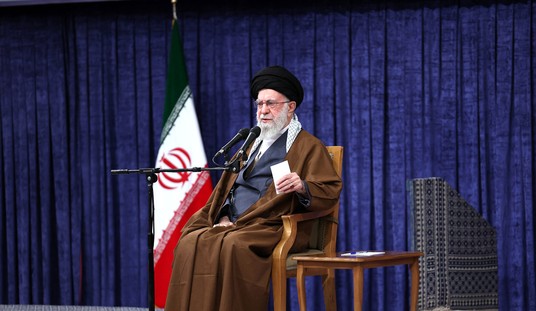The Russian economy is up, so they say, and yet incidents of horrifying race violence are up even more. Is there a connection? There is indeed.
Two weeks ago, the McLatchy news service reported the latest data collected by the Sova Center, Russia’s leading NGO dealing with race relations. The results were shocking. In the first six months of this year, G-8 member Russia had already experienced nearly as many race-motivated murders as in all of 2006, and was on pace to record over 120 such killings — that’s one every three days — a stunning 50% jump compared to 2007. For contrast, in 2006 there were only three race-based murders in the U.S., a nation with twice Russia’s population and a far larger population of racial minorities.
The news was grimmer still in Russia’s capital city of Moscow. In 2004 the city accounted for only 36% of national race murders, but in 2007 it was responsible for 57%. In 2004 there were 18 race killings in the capital but by 2007 the number had nearly tripled, to 48, and Moscow had already experienced 36 race killings in just the first six months of this year, on pace to exceed 2007’s total by 50% or more.
A few days ago, the Moscow Times added more disturbing details: “The number of hate crimes committed in Moscow has exploded this year, rising sixfold compared to the same period last year.” In other words, for every victim of lethal race violence there are dozens of others who are lucky enough to escape with their lives. Heaven only knows how many such incidents go unreported out of fear of corrupt — and racist — police officers.
Given Russia’s reputed economic ascendancy, this startling explosion of race violence appears to make little sense. One would think that with better economic times, there would be less incentive for the Slavic majority to lash out at racial minorities. But in fact, where Russia is concerned, common sense rarely carries the day.
Here’s why.
Another recent story in the Moscow Times tells of how Russian Railways boss Vyacheslav Steklyevich is grappling with a chronic labor shortage as he struggles to hold together Russia’s crumbling infrastructure. Steklyevich told the paper: “So far we are OK for labor, but when we start on the bigger infrastructure projects then it’s possible that it will be much more difficult to get enough workers.”
Russia is suffering from a well-documented demographic crisis. The country isn’t in the top 100 nations of the world when they are ranked for average male adult lifespan, and it suffers a net loss of hundreds of thousands from its population each year. Russia has crisis-level public health disasters resulting from smoking and drinking, and has resorted to bribing parents to have babies in a desperate bid to staunch the population ebb.
The Moscow Times explains the consequences of this crisis: “Forecasts estimate that the country’s work force will fall by eight million over the next seven years and by up to 19 million by 2025, Russian demographers said in a recent UN-sponsored report. Between 2010 and 2014, the work force will decrease by 1.3 million per year, the report said. In the first four months of this year, the work force was down 300,000 on the same period last year, the State Statistics Service said.” It quotes Yevgeny Yasin of the Higher School of Economics: “This problem is greater than any other facing us over the next 10 years. In reality, the Putin-era policies were for the most part a step backward, so that hasn’t given much cause for hope.”
If Russia were a different kind of country, it could attack this problem by inviting in people from other countries, just as the United States has always done. But Russia isn’t a different kind of country; it’s Russia. And for that reason, Russia has a life-threatening apocalypse on its hands.
Russia can’t fill its worker gap with immigrants the way America can, for two separate reasons.
First of all, most of the world already knows that notwithstanding its windfall from spiking world oil prices, Russia is mostly still a horrific nightmare of a country, with an endless litany of dangers from AIDS to house fires to highway fatalities to police corruption to one of the world’s highest overall murder rates. Most foreigners, especially well-qualified experts, have no particular affinity for Russian culture and, given the country’s many drawbacks, have no desire to set foot in Russia.
But even if foreigners wanted to enter Russia, Russians simply don’t want them, no matter the economic consequences. Russia is infamously a nation of xenophobes ruled over by a proud KGB spy who is utterly paranoid of foreign invaders. (Putin recently accused the nation’s leading steel company of making too many sales to foreigners, with the result that the company’s stock lost half its value and the wider market entered a free fall state.) When was the last time you saw a tourism ad sponsored by the Russian government urging foreigners to come for a visit?
Xenophobia is, in fact, official policy. Putin routinely claims that foreign-supported NGOs are nothing but nests of spies, and launched a furious assault on them, which even included the innocuous British Council cultural exchange group a few months ago. More, recently, the Kremlin launched a furious salvo at oil major BP, driving its foreign staff out of the country with their tails between their legs, and banned Russia’s leading foreign investor, an avowed Russophile, from ever entering the country again just because he called for a bit of accounting transparency. (The same fate befell oil oligarch Mikhail Khodorkovsky, except that he ended up in a Siberian gulag.)
Worst of all, though, Russians can’t seem to stand the sort of dark-skinned foreigners who come from even more economically and socially backward areas of the world and who might be attracted to Russia. The people from the war-torn breakaway region of Chechnya bear the brunt of this hostility. Apartment rental and personal ads routinely declare that the dark-skinned are not welcome.
But inevitably, the vacuum condition of labor shortage draws in desperate alien workers. The Moscow Times reports: “While there are around two million migrant laborers working legally in the country, the number of illegal workers is estimated at up to eight million, a spokesman for the Federal Migration Service said.” Russia, in other words, hardly welcomes these “different” people, but they come anyway, illegally. It’s no surprise, then, to see incidents of race violence exploding in Russia, as we reported last week, for example. Yet, but for their presence, the Russian economy would already have imploded in a catastrophic failure of anemic production. Even as it is, inflation is spiraling out of control as too much oil money chases too few goods and services. The Moscow Times quotes Gulnara Safarova, a human resources specialist at Cushman & Wakefield Stiles & Riabokobylko: “Without [illegal migrant] workers, it’s impossible now to imagine any building process, because Russian labor resources are so limited.”
As more such workers appear, Russia’s racist minions become more and more active in seeking to wipe them out, or at least terrorize them into fleeing. In so doing, they are Russia’s worst enemy, depriving the nation of a lifeline work force without which its economy will surely founder and sink just as that of the USSR did before it.
So a time bomb is ticking in Russia. It’s running out of native citizens and it’s running out of good will to attract foreigners. It’s turning into a desert in which roam a few well-connected oligarchs who have hoarded the nation’s natural resource wealth.
John McCain has called for the world to confront Russia and demand justice for those the Kremlin is oppressing. And where is Barack Obama, the most prominent minority candidate for power in the history of Western civilization?
He is nowhere to be heard.









Join the conversation as a VIP Member